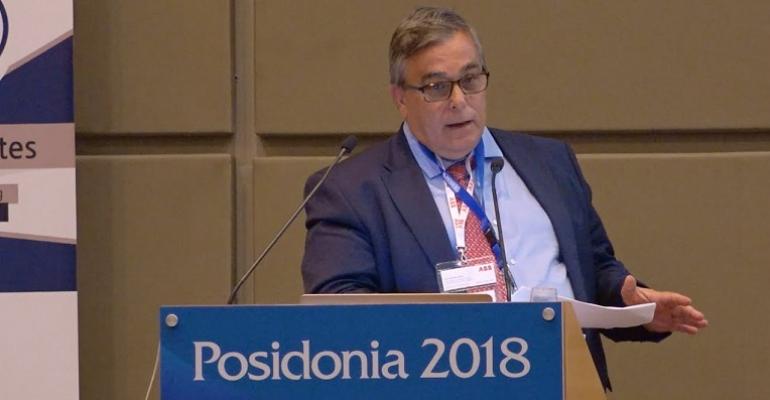Chairman of Greece’s influential Marine Technical Managers Association (Martecma), Stavros Hatzigrigoris says the building of the low-carbon ships of the future is such an expensive proposition shipowners alone will be unable to finance them without charterers, financiers and even governments chipping in.
Shipping should seek a piece of the European Union’s recently announced Green Deal, says Hatzigrigoris, md, of Maran Gas Maritime, the gas arm of the Angelicoussis Group, Greece’s largest operator, running a diversified fleet of some 137 vessels of near 27m dwt.
The EU’s Green Deal initiative to shape a carbon-neutral economy on the continent, was announced last December, and includes a law to make Europe climate-neutral by 2050 with a target of a 50% to 55% emissions reduction for 2030 and a fund worth Euro 100bn ($111bn) to finance the transition.
“We want part of that,” said Hatzigrigoris in a panel discussion at the Naftemporiki Shipping Forum in Athens last week. He explained building a new supramax that complies with the IMO’s 2030 environmental goals is about two-and-a-half times more expensive than building a traditional one — and fuel is already more expensive.
“I don’t think shipowners can shoulder that cost alone,” he said. “It has to be shared out — governments must assume it, charterers must assume it, those who do the financing must assume it.”
Indeed, it’s not the first time Hatzigrigoris has maintained the burden placed on shipowners to achieve environmental targets placed before the shipping industry are too great for ship operators. Addressing last November’s Greek Shipping Summit organised by Naftiliaki Greek Shipping Review under the auspices of Martecma, Hatzigrigoris referred to the then just established maritime green fund to raise billions of dollars from a bunker fuel levy to incentivise the drive for renewable fuels, an idea backed by the Angelicoussis group.
“With shipping generating around 500m tonnes of CO2 annually a carbon tax is expected to be introduced very soon starting from $10 a tonne rising in time to $70 to $75 per tonne. This can create a fund of about $8bn and the proposal of the maritime green fund is that this money be used to support research and innovation in shipping and maybe give something to the first movers,” said Hatzigrigoris.
Copyright © 2024. All rights reserved. Seatrade, a trading name of Informa Markets (UK) Limited.
Add Seatrade Maritime News to your Google News feed.  |

